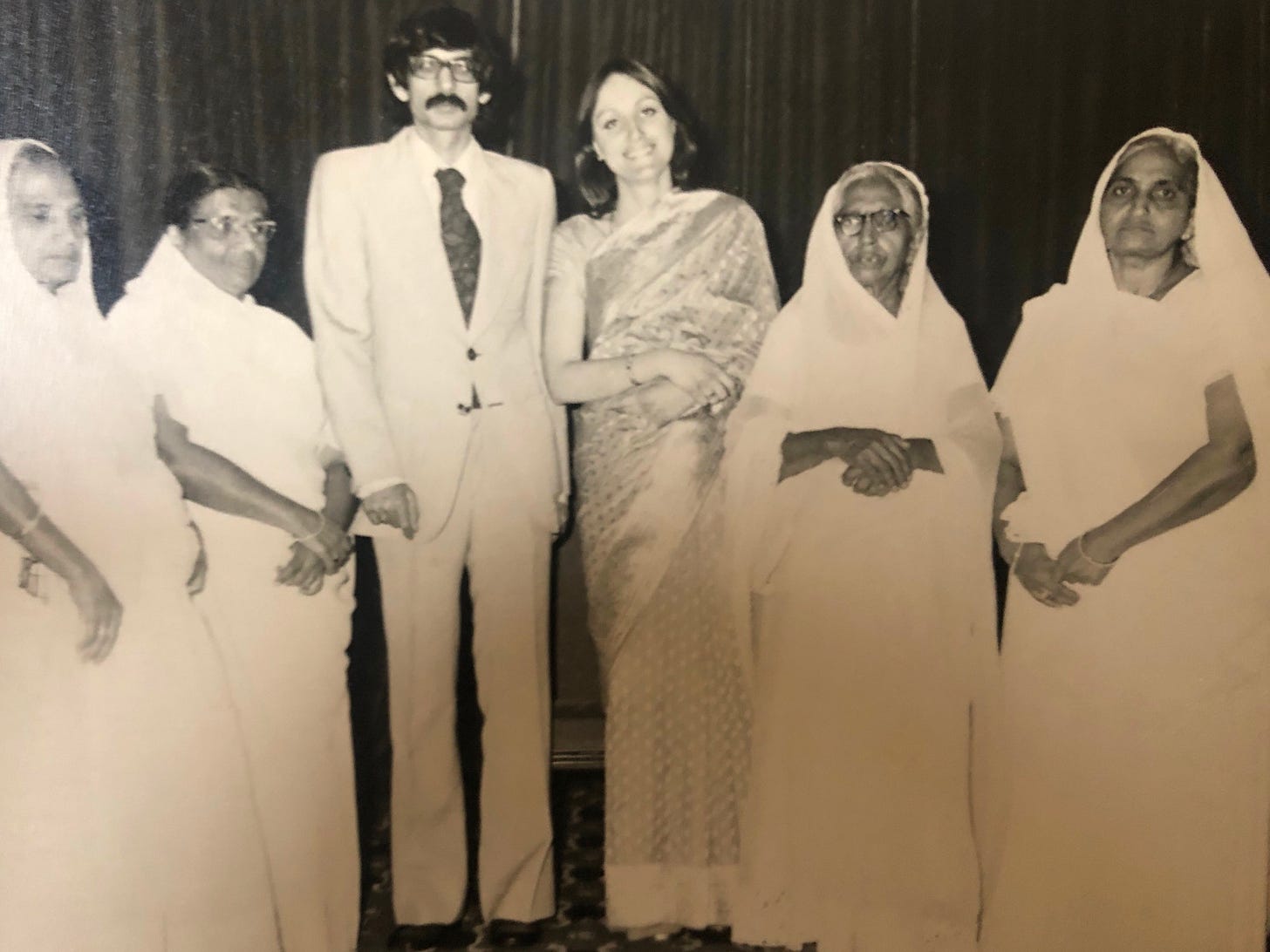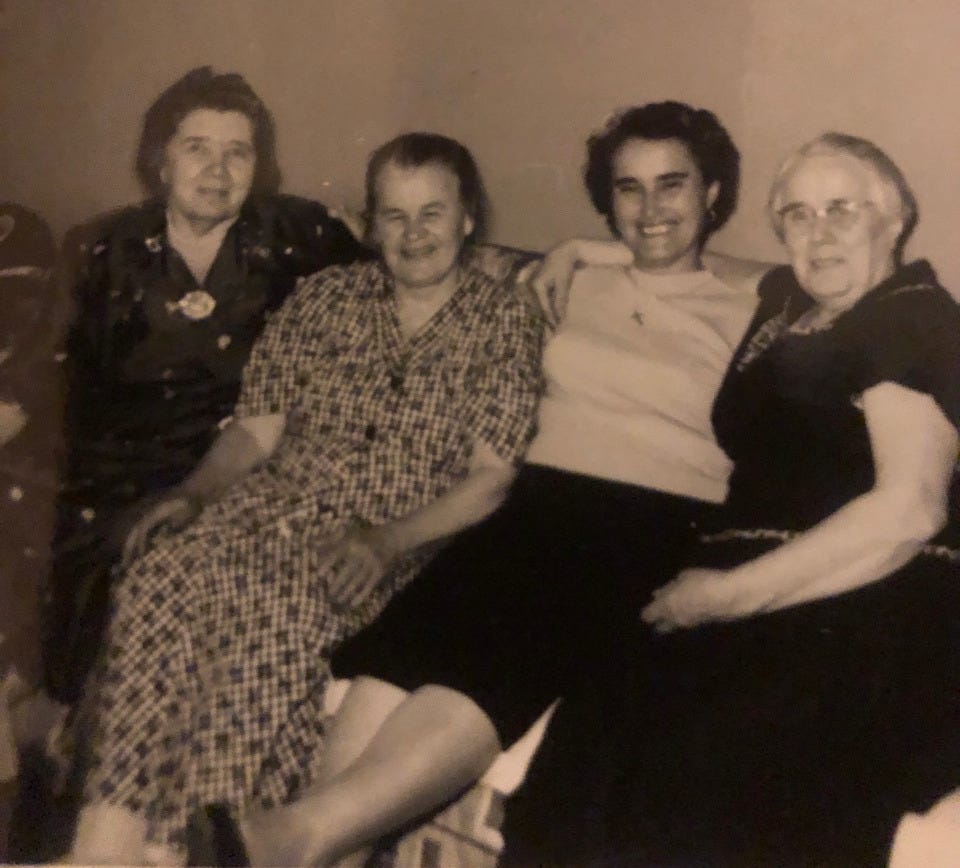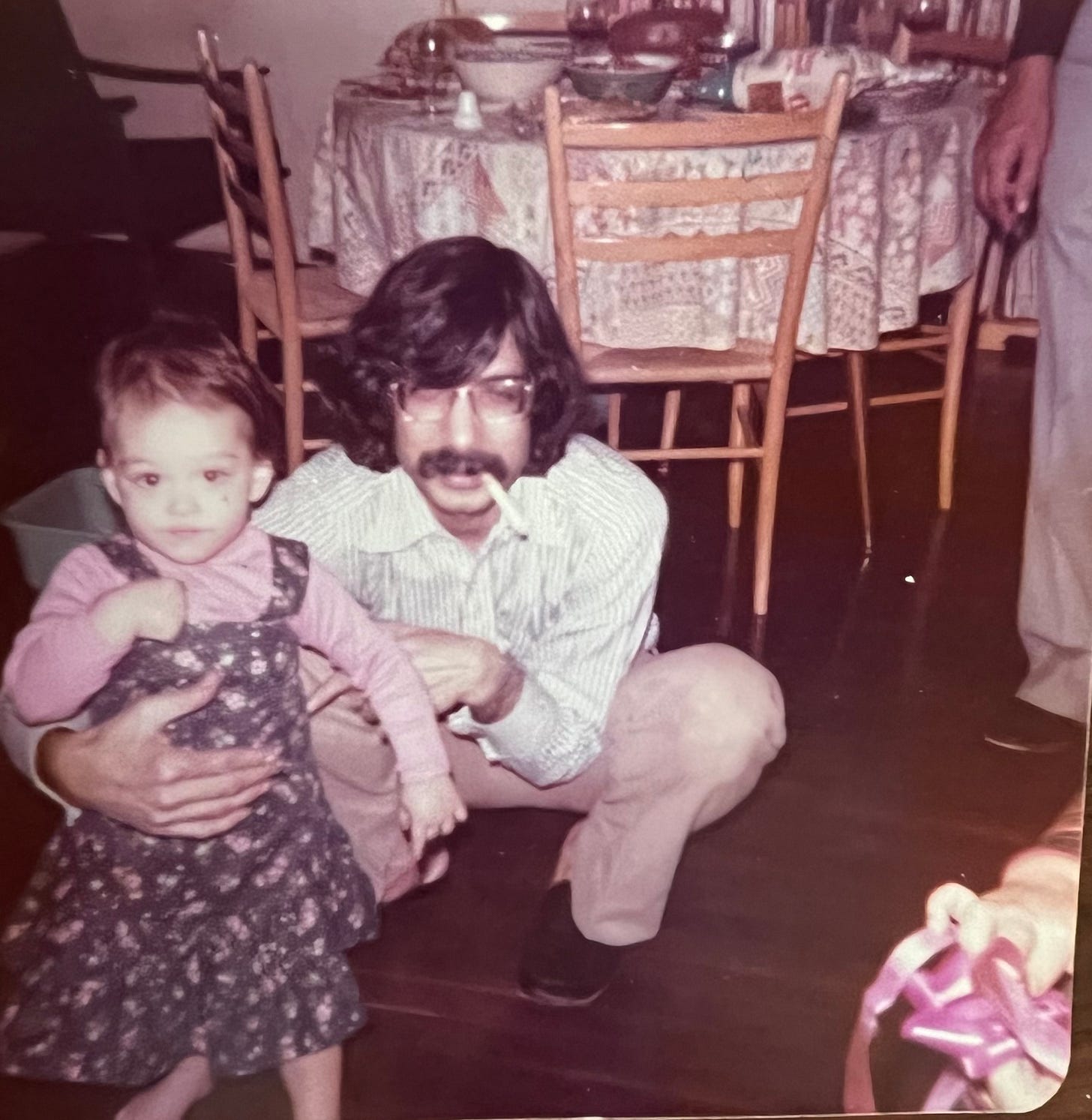Notes on Home/Homeland
What it means to be descended from the displaced.
My grandparents on both sides fled their homelands and were never able to go back.
What does that do to the psyche? And how does it affect future generations?
I know I’ve never felt like I had a solid foundation under me — I expect things to fall apart without warning or reason. I’ve always had the sense that I could work so hard to build something, glance away for a minute, and by the time I looked back, it might’ve turned to dust.
Turns out, this isn’t a great way to create a future you actually want to live in.
When I was in high school, I read my dad’s copy of Sartre’s Nausea and just thought I was an existentialist. Only recently have I begun to understand all of this as not just personality but inheritance — to see it in the context of my family history.
My maternal grandparents fled the Ukraine for Brazil during World War II. They thought they’d gotten jobs on a coffee plantation, but when they arrived they realized they were essentially indentured servants and they had to escape that place too.
My paternal ancestors were Sindhi Hindus living in Sindh for generations before the Partition of India. Then, in 1947, when the British left and split the country in two, they were forced to leave everything behind as violence broke out around them. They moved to Bombay as refugees.
My mom was born in Brazil and my grandparents moved the family to New York when she was eight. My dad grew up in Bombay and moved to New York in his twenties for grad school. They met, got married, had two kids, and moved to suburban New Jersey.
It should come as no surprise that my parents’ worldview was one of a kind of chaotic non-linearity. Cause and effect were interchangeable. Emotions overrode facts. Truth was more mythic than literal, and some kind of disaster was always imminent.
There’s a kind of weightlessness to inherited exile — not the romantic kind, but the dizzying kind, where everything feels untethered.
Growing up, I couldn’t name it, just like I couldn’t name the feeling of loss in my parents’ failure to teach me the languages they grew up speaking (which became embarrassment and shame every time my dad put me on the phone with my grandparents in India, who barely spoke English), or the feeling of being an outsider no matter where I went.
Alchemizing trauma into art.
All of this brings me to a story I’ve been working on, one loosely inspired by my paternal family history. It’s a real beast of a thing, spanning generations and continents.
The story touches on themes of home and homeland, and what it means to leave your home and never be able to return, of identity and how different societies prioritize the individual over the collective (and vice versa), what it feels like to be a biracial first generation American — one who is American in India and Indian in America, and that strange feeling I get in India, like I’m both the colonizer and the colonized.
So…yeah it’s a lot.
Bombay, 2023
I keep putting the script aside because I’m trying to fit so much in, it’s becoming an unwieldy epic. But then I pick back up again because this story really wants to come out into the world.
I was talking about the script with my friend Jen from Inspired, and she helped me realize: maybe this isn’t one film. Maybe it’s three. So I think now I’m working on a trilogy?? Which seems kind of insane, but also exactly the kind of films I want to watch and that I think we need right now. Personal yet universal, told through a lens that’s impossible to replicate.
Is anyone out there working on an epic like this? How do you approach it? Or maybe you're transmuting ancestral trauma in a totally different way. If you’re open to sharing, I’d love to hear about it.
Until next time,
Tara





You are a true alchemist - I can't wait to see where the script(s) go.
I LOVE the idea of a trilogy! There’s so much to digest and unravel here. Past, present, future…some other iconic trifecta of experience. I would most certainly watch this!